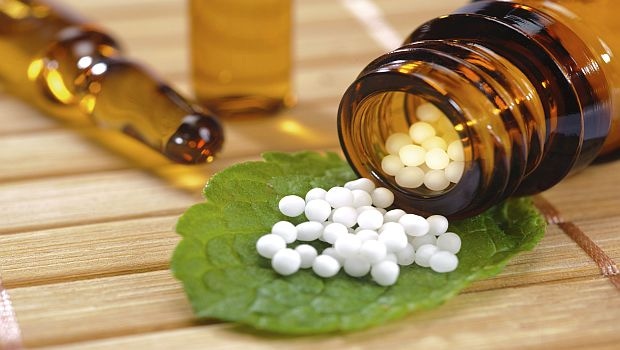Consumers spend billions of dollars on homeopathic products, yet whether such products are effective has been the subject of considerable research, and FDA said in a recent public notice it hasn’t reviewed them for their efficacy and safety.

FDA on Monday kicked off a two-day public hearing in Silver Spring, Maryland on homeopathic products, drawing some detractors who questioned the efficacy and safety of an alternative category of medicine that dates back to the late 1700s.
Since 1988, homeopathic companies have distributed prescription and non-prescription drug products without FDA approval under conditions set forth in a compliance policy guide.
Consumers spend billions of dollars on homeopathic medicine, yet researchers have questioned whether such products are effective. As FDA revealed in a recent public notice announcing the two-day hearing, it hasn’t reviewed homeopathic medicines for their efficacy and safety.
Such products contain various substances, including ingredients that come from plants, animals, minerals and chemicals. Homeopathy is grounded in part on the idea “that a disease can be cured by a substance that produces similar symptoms in healthy people," according to the National Institutes of Health (NIH), an agency within the U.S. Department of Health and Human Services.
NIH declares on its website, “There is little evidence to support homeopathy as an effective treatment for any specific condition."
In recent years, FDA has reminded homeopathic companies in warning letters that they may only market a homeopathic product as an over-the-counter (OTC) drug if it is amenable to self-diagnosis and treatment. “Homeopathic products offered for conditions not amenable to OTC use must be marketed as prescription products," FDA wrote in a 2013 warning letter to Standard Homeopathic Company.
FDA has sent nearly 40 warning letters to makers of homeopathic products since 2009, and the agency is “gathering information about whether to adjust our current enforcement policy," Cynthia Schnedar, director of the Office of Compliance at FDA’s Center for Drug Evaluation and Research, told The Washington Post.
In a written presentation, the American Association of Homeopathic Pharmacists (AAHP) maintained the “current regulatory framework is effective" and “FDA takes swift and comprehensive action with support of" the compliance policy guide.
FDA is reexamining its enforcement policy amid an era of strong demand for homeopathic products. In 1988, FDA characterized the homeopathic drug market as a multimillion dollar industry. It’s now worth billions. According to FDA’s public notice, the Centers for Disease Control and Prevention (CDC) estimated in 2007, adults shelled out roughly $2.9 billion on homeopathic medicine.
Some critics argue consumers are throwing away their money and possibly endangering their health by rejecting the use of traditional medicine. Michael De Dora, director of public policy for the Center for Inquiry, a nonprofit organization, quoted the following findings released last month by the Australian National Health and Medical Research Council (NHMRC): There “are no health conditions for which there is reliable evidence that homeopathy is effective.
“Homeopathy should not be used to treat health conditions that are chronic serious, or could become serious," NHMRC said. “People who choose homeopathy may put their health at risk if they reject or delay treatments for which there is good evidence for safety and effectiveness."
Hundreds of studies have found that homeopathic products are not effective, and even positive studies have only found what’s known as the placebo effect, according to De Dora’s written presentation. The placebo effect is thought to stem from the idea that “if a person expects a pill to do something, then it’s possible that the body’s own chemistry can cause effects similar to what a medication might have caused," WebMD explained.
Homeopathic medicine has been recognized in the United States as a legitimate category of drugs since at least the early part of the 20th century. The 1938 Federal Food, Drug and Cosmetic Act (FD&C) recognizes as official the drugs and standards in the Homeopathic Pharmacopeia of the United States (HPUS). The HPUS includes more than 1,200 officially monographed ingredients, according to FDA.
AAHP said up to 25,000 physicians use homeopathic medicine in their daily practice.
Nancy Peplinsky, founder and executive director of the Holistic Moms Network, said she uses homeopathic medicine for her two sons, including her oldest boy who suffers from food and seasonal allergies. She said her oldest son is allergic to capsules of several mainstream drugs and suffered dangerous reactions to a number of drugs. Peplinksy said her youngest child has special needs and finds it difficult to swallow pills. In a written presentation, she characterized homeopathy for her youngest child as an “easy solution to manage mild issues."
But consumers may not understand the difference between conventional drugs and homeopathic medicine, according to Adriane Fugh-Berman of Georgetown University Medical Center.
“Most consumers have no idea what homeopathy is and may assume that these products are dietary supplements or even conventional drugs," Fugh-Berman, M.D., associate professor with the Department of Pharmacology and Physiology, said in a written presentation. “Consumers (and, probably, most health professionals) are unaware that FDA does not review homeopathic drugs for safety or efficacy."
A representative of the National Center for Homeopathy said in a written presentation that consumers who have reached out to the organization haven’t expressed confusion over homeopathic OTC products.
Amy Rothenberg, a board member of the American Association of Naturopathic Physicians and president of the Massachusetts Society of Naturopathic doctors, said in a written presentation that the low cost of homeopathic medicine and consistent quality appeal to patients and physicians.
Still, she agreed FDA could be more active in enforcement against companies that include non-homeopathic ingredients in products that are labeled as homeopathic. FDA’s compliance policy guide notes such products are not homeopathic drug products. Rothenberg also drew the line between homeopathic medicine and treatment that requires the expertise of a health care provider.
“People who suffer from potentially life-threatening diseases, such as asthma, should be treated by health care providers," she said. “Having OTC drugs—homeopathic or otherwise—labeled in a confusing manner for consumers should be avoided."
Like all drugs, homeopathic products have raised safety concerns, especially regarding use by children.
“The 2012 American Association of Poison Control Center Annual Report indicated that there were 10,311 reported poison exposure cases related to ‘Homeopathic Agents,’ with 8,788 of those reported cases attributed to children 5 years of age and younger," FDA said in its recent public notice. “Of the 10,311 reported cases, 697 required treatment in a health care facility."
AAHP, however, said the number of serious adverse event reports submitted to FDA is low. Manufacturers of nonprescription drugs must report to FDA life-threatening incidents and other serious events that are potentially linked to a product.
“Over decades of use, we have not found problems or variability with quality of the homeopathic products," Rothenberg declared, “and no toxicity has been reported."
Speaking Tuesday on behalf of the American Herbal Products Association (AHPA), lawyer Will Woodlee said FDA has the appropriate tools to protect consumers of homeopathic medicine.
"Through inspections of manufacturing establishments and investigations of mandatory reports of serious adverse events associated with homeopathic drug products, FDA currently has the ability to investigate potential safety issues and take any indicated follow-up action in a timely manner," Woodlee of the law firm Kleinfeld, Kaplan, and Becker, LLP testified. "Indeed, FDA historically has used its tools and authorities to address perceived issues involving homeopathic drug products, including 'recommending' and overseeing recalls as well as issuing warning letters."
About the Author(s)
You May Also Like






.png?width=800&auto=webp&quality=80&disable=upscale)